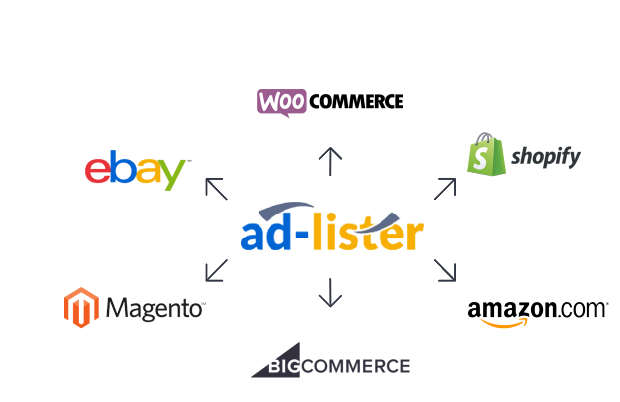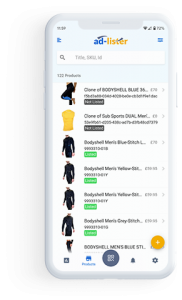What is PIM?
You might have heard of the term PIM quite a few times in passing, as it’s a disruptive technology experiencing rapid growth in the retail sector.
So what is PIM and what does it stand for?
PIM stands for Product Information Management, a type of software that manages all of the data surrounding the products in your product catalog, size, weights, descriptions, images, variations, and so on.
What are the benefits of using PIM software?
A PIM software is basically an extension that integrates with online commerce platforms such as eBay, Amazon, Magento, Shopify, as well as other channels, data sources, and software systems.
PIM works as a multichannel marketing software tool that allows you to maintain control over what products you sell on which platforms. It has the ability to track all of the catalog and product data of a company in real-time, sending it to sales channels in the right format and ensuring a sync from the PIM to the channel (using an API connection).
Not all PIM solutions include a variety of connectors needed to launch your multichannel strategy quickly and efficiently.
What is the goal of a PIM?
A huge problem businesses face is the amount of information that needs to be sent in multiple versions to different sales channels.
What was once a huge library of paperwork has now become a collection of digital documents and folders. Hundreds of spreadsheets with thousands of columns to organize millions of data pieces.
A PIM solves this problem by allowing businesses to store and update all the information related to their product catalog. This software is based on a cloud storage repository, which provides a way to centralize all the information flow and increase overall productivity while ensuring that the information travels to the appropriate channels and reaches the right customers at the right time.
What are the advantages of using a PIM system?
Product data structure
One of the key benefits of using PIM software is the ability to aggregate information in various formats. Many eCommerce platforms demand strict adherence to their own data structure (to keep a hold on branding and provide consistent customer experience). A PIM can send different information to multiple platforms, using the right data structure for each.
Centralization of data
Using PIM, teams can organize and classify products according to the desired categories and data fields, as well as update any associated data. This data is sent to the connected channel and it auto-populates the fields.
This means that there are no discrepancies between products that are listed on multiple channels. A PIM guarantees that the same complete and precise information will be shown across all sales channels and that it will be visible to all members of the company, in any country in real-time.
What else can a PIM system do for your business?

- It removes the manual uploading of data to each platform – this means you can be more productive with how you handle product information.
- It helps you create new shopping channels and expand into foreign markets, increasing your return on investment.
- PIM lets you write detailed product descriptions so that you reduce the risk of product returns.
- PIM helps you respond to seasonal changes and improve cross-selling opportunities. Therefore, you will be able to increase the average order value.
What type of company needs a PIM solution?
PIM is growing in popularity and it is being adopted by businesses of all sizes. Software that a few years ago was only accessible to large companies is now within the reach of small and medium-sized businesses.
A PIM solution becomes a necessity when a company handles a considerable amount of SKUs. Vendors, retailers, manufacturers, distributors, and brands using a variety of channels and information documents and product updates will see their performance improve with a PIM.
Brands and Manufacturers – manufacturers are the original source of product data and they need to have accurate data to meet the needs of their customers. PIM lets manufacturers take full ownership of their product information, unlock new sales channels and expand.
Distributors – distributors often have thousands of products to look after and need to feed a growing number of sales channels with informative product data. A PIM solution can help distributors by giving them the ability to rapidly process a high volume of data, expand their product range and stay consistent across every channel.
Retailers and marketplaces – Retailers have to take into consideration customers who are shopping online and offline and value a consistent experience across every sales channel. A PIM system can help retailers speed up the process by offering them an omnichannel experience and tell better product stories to increase their overall revenue.
The more products you have, the more errors, repetitions, and mismatches between channels will creep in. As versions increase with each passing season, the more likely it is that outdated information, or worse, catalog errors will be visible to customers. Having a PIM solution that offers a single source of truth, like Ad-Lister, can help eliminate this problem.
What types of information does a PIM solution manage?
PIM is changing the way businesses approach their product information, teams can now access a single database, designed to efficiently manage the following types of product information:
Key product attributes – Descriptions, titles, and SKUs
Technical specifications – Measurements, sizing, and materials
Taxonomies – Categories, relationships, and product tags
Marketing data – SEO meta descriptions, titles, and keywords
Digital assets – Images, videos, and animation.
Localised data– translated product descriptions and currency
Conclusion
A PIM solution such as Ad-Lister can handle a huge amount of information, millions of fields of product data, thousands of categories across multiple brands, and unify it on one single interface. This information can be customized to match the requirements of every sales channel, allowing users to seamlessly expand their online business across multiple sales channels.
Try Ad-Lister for 14 days and see how PIM can change the way your business approaches online sales.



